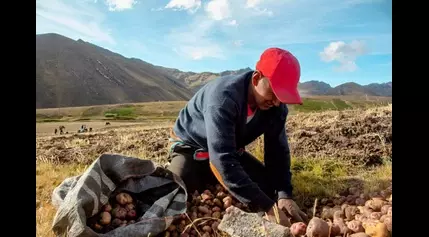Empowering Arctic Communities: Unlocking the Potential of Local Food Production
In today's rapidly changing world, many Indigenous communities in the Arctic region heavily rely on local food production, which forms an integral part of their food security and overall well-being. However, these "informal" economies often go unnoticed in the macro-economic statistics, leading to them being sidelined in policies designed to tackle the pressing issue of climate change. This article delves into the significance of local food production in the Arctic and explores how a holistic approach can create a more sustainable and equitable future for these resilient communities.Unlocking the Untapped Potential of Arctic Food Systems
The Dual Nature of Arctic Economies
Arctic communities are home to a unique blend of traditional and formal economic practices, involving a diverse range of activities such as hunting, fishing, gathering, and trapping, alongside wage-based jobs. This intricate tapestry of economic activities is often overlooked in the broader economic landscape, leading to a disconnect between policy decisions and the realities faced by these communities.The Impact of Carbon Taxation
With the introduction of carbon taxation policies in Canada, the cost of fuel used in local food harvesting has become a paramount concern for Arctic communities. This development has prompted scientists to delve deeper into the sensitivity of these food systems to carbon tax policies, seeking to uncover the true economic and environmental significance of local food production in the Inuvialuit Settlement Region of the western Canadian Arctic.Quantifying the Value of Local Food Production
The research, led by experts from the Max Planck Institute for Evolutionary Anthropology and the Inuvialuit Regional Corporation, set out to calculate the economic and environmental impact of local food production in the region. By comparing the costs and carbon emissions associated with locally-harvested foods and their market-based substitutes, the study revealed a surprising finding: local food harvesting, even when reliant on fossil fuels, is more economically efficient and less carbon-intensive than industrial food production.The Efficiency of Local Food Systems
The study found that under plausible scenarios, replacing locally-harvested foods in the Inuvialuit Settlement Region with imported market substitutes would cost over 3.1 million Canadian dollars per year and emit over 1,000 tons of CO2-equivalent emissions annually. In contrast, the gasoline inputs to local harvesting cost around 295,000 Canadian dollars, resulting in 317 to 496 tons of emissions – less than half of what would be emitted by market substitutes.Rethinking Climate Change Policies
The findings of this study underscore the need for climate change policies to be locally adapted, ensuring they do not inadvertently undermine emission targets and impact food security and health in remote Arctic communities. These communities face heightened economic and logistical constraints compared to more populated regions, and by omitting the potential impact on local food production, the entire climate change narrative becomes flawed.Empowering Arctic Communities through Inclusive Policymaking
As we move forward, it is essential to involve local communities in shaping policies affecting their food systems. By including indigenous populations in the decision-making process, we can respect their knowledge and integrate it into climate strategies, leading to more effective solutions for Arctic communities. Promoting local food production can enhance food sovereignty, reduce dependence on external markets, and allow communities to take control of their food sources.Investing in Sustainable Arctic Food Systems
Investing in local food systems supports environmental sustainability and economic development. Creating markets for local products and providing resources can stimulate job creation and improve community well-being. Furthermore, educational programs on sustainable harvesting can empower residents and build resilience against the impacts of climate change.A Holistic Approach to Climate Change in the Arctic
Addressing climate change in the Arctic requires a holistic approach that values local food production and prioritizes community engagement. By supporting indigenous practices and integrating local knowledge into climate strategies, we can create a more sustainable and equitable future for Arctic regions and beyond.


